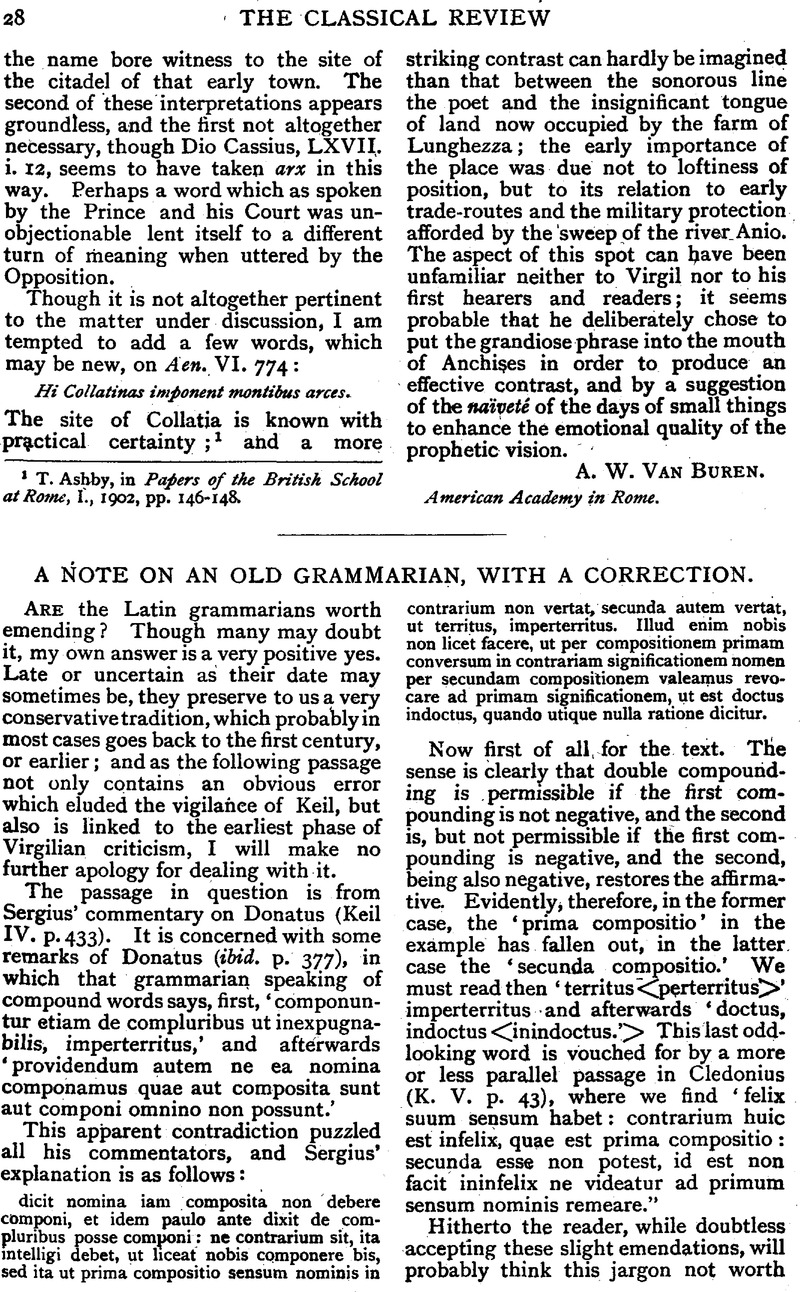No CrossRef data available.
Article contents
A Note on an Old Grammarian, with a Correction
Published online by Cambridge University Press: 27 October 2009
Abstract

Information
- Type
- Original Contributions
- Information
- Copyright
- Copyright © The Classical Association 1920
References
page 29 note 1 Perhaps I should rather say that this is what all recent editors agree that he did say. The best MSS. have ‘dum repugnantibus.’ Others and earlier edd. ‘interdum repugnantibus.’ Of these the first is nonsense, and the second does not give the antithesis which the sentence evidently requires. Whether it is merely an attempt to emend ‘dum repugnantibus,’ or whether it is partially inspired by Virgilian orthodoxy, I should not like to say.
page 30 note 1 I do not mean to imply that the need of the Latin Grammatici for a Roman Homer is the cause why Virgil is to us what he is. While I think that he owed his position originally to what we may call an accident, I do not suppose that he could have maintained it without higher claims. At least, in the interest of the sanity of human judgments, my own included, I hope not.

